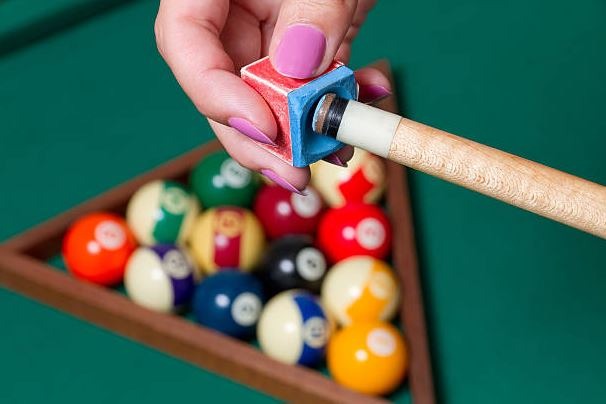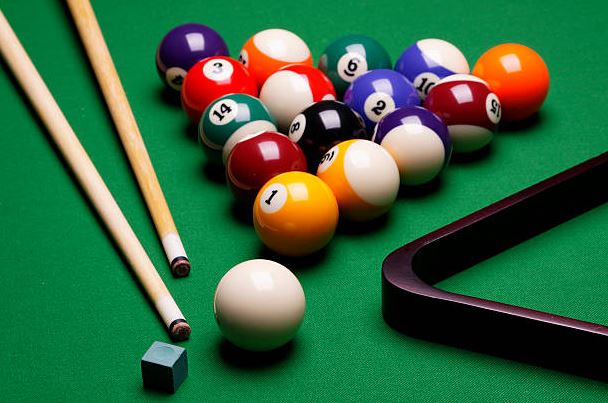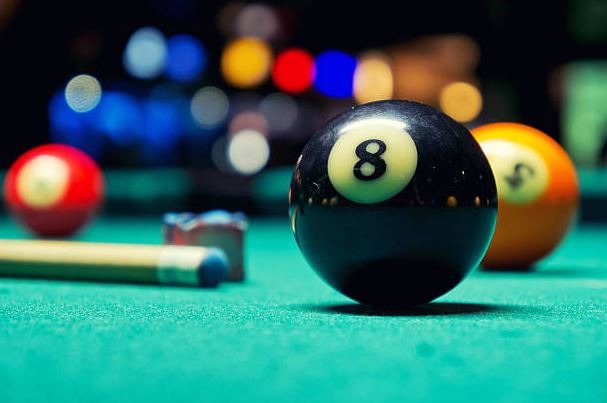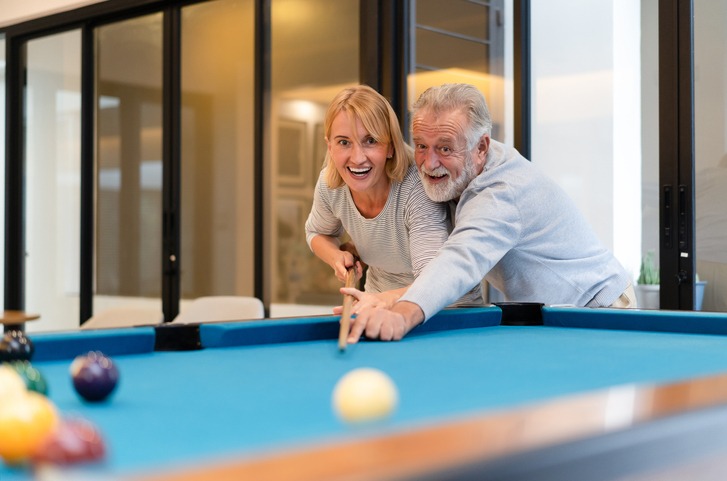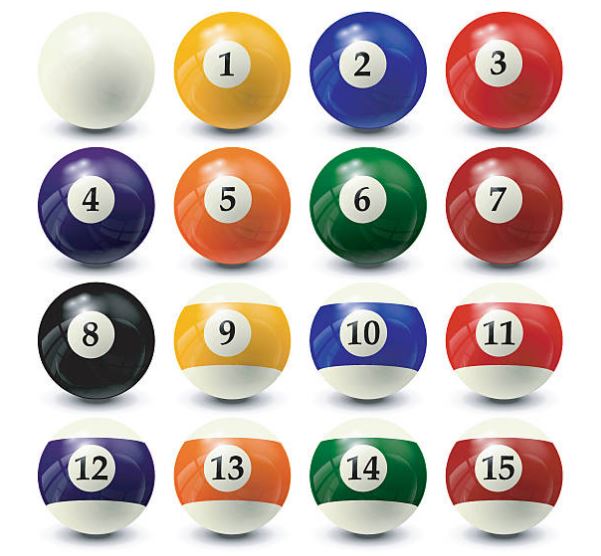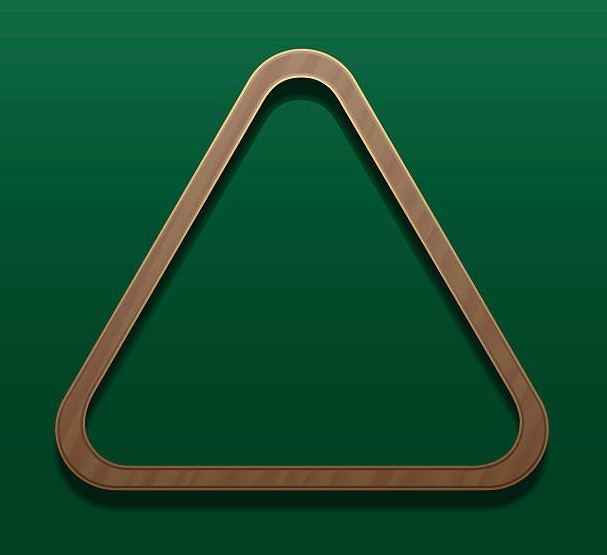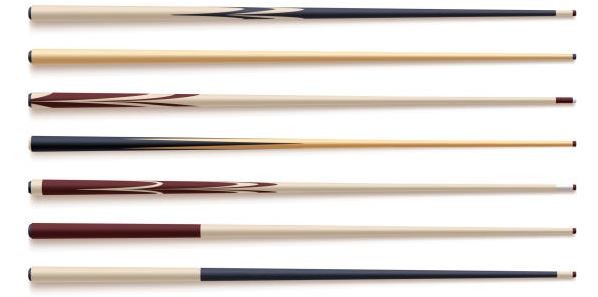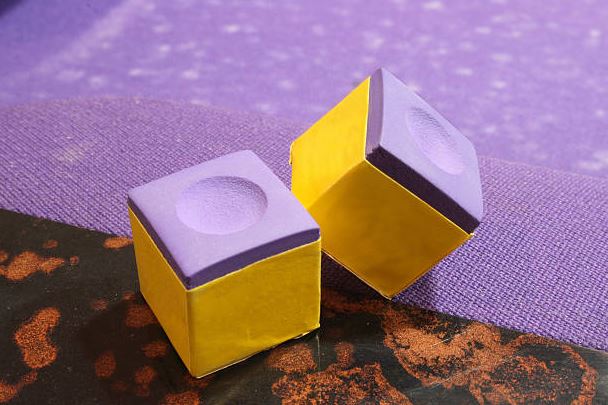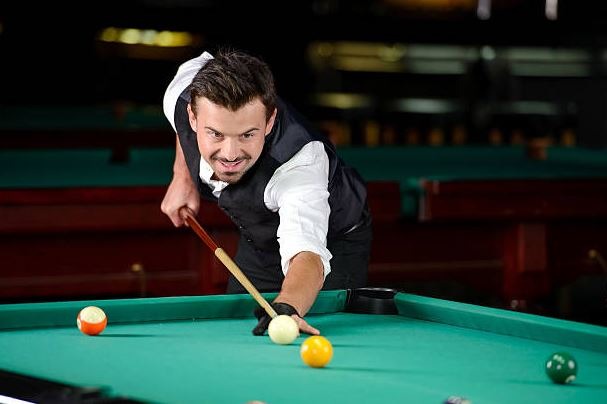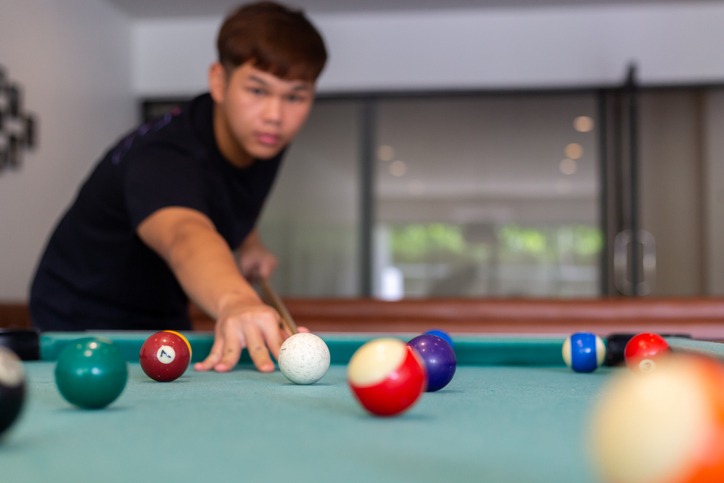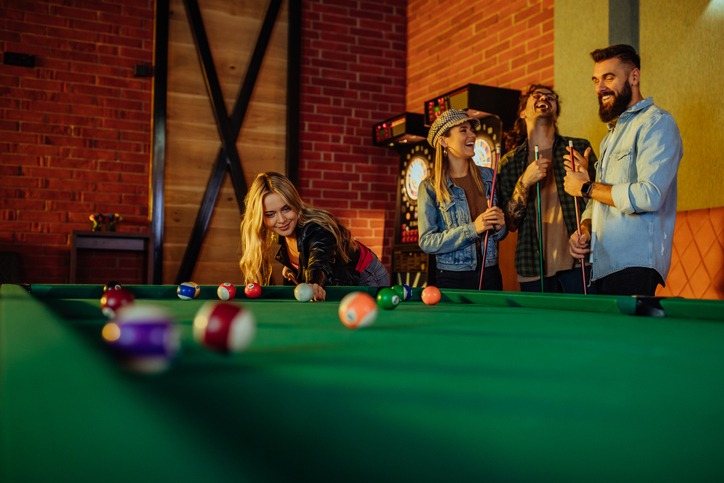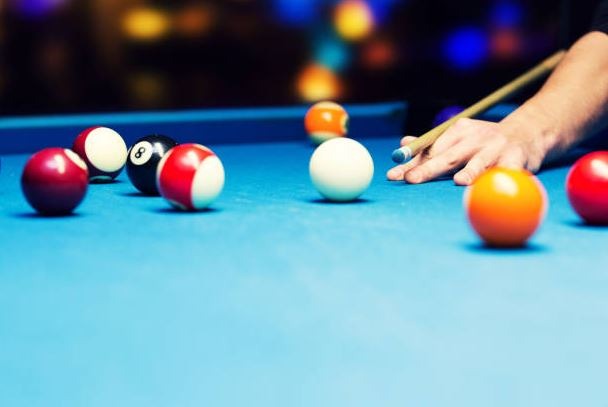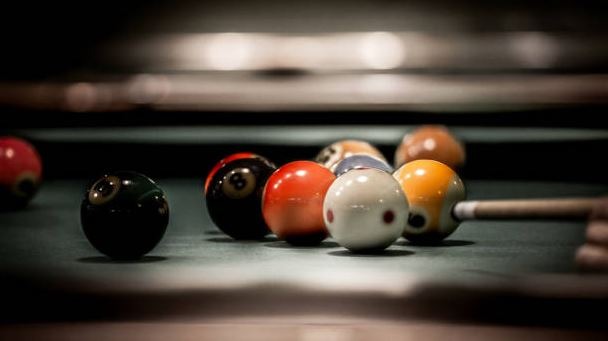Billiards is played with three balls on a five by ten table with no pocket. It is played almost everywhere except in the United States and the United Kingdom, where many prefer to play pool or snooker. Billiards is a prominent game in Europe, South America, and Asia. A white ball, a yellow ball, and a red ball are present. The white ball serves as the cue ball for one player, while the yellow ball serves as the cue ball for the other. The color red is usually associated with an item ball. A four-ball Asian game is also available.
Billiards was the predecessor to snooker and was considered the more advanced of the two games for many years. Unfortunately, players like Joe Davis, Walter Lindrum, and others in the early twentieth century had grown so excellent at the game that it had died out as a form of public entertainment.
Breaks of a thousand or more were expected at the very highest level due to their excellent knowledge of the game, reducing the excitement and intensity of bouts with less perfect players on display. The professional match rapidly became unlike the game played by amateurs and youngsters at club level, and its popularity dwindled.
Pool Details
Read More About This Hobby| Category: Competition, Games/Gaming, Mental, Social, Sports | Time: 30-60 min | Skill: Some |
| Initial Cost: $$$$ (500+) | Space: lots | People: alone, small |
| Long-Term Cost: Low | Makes Money: No | Location: indoor |
History
Billiards has a long history that dates back to the thirteenth century. The game was created in Europe, although the exact nation was disputed. The French assumed the English originated the game, while the English felt the French did.
Finally, a French billiards expert discovered proof suggesting the game began in the fourteenth century in France.
The terms “billiard” and “bille” are derived from two French nouns. “Stick” and “ball” are the meanings of these two terms. When you combine the two, you get stick-ball, or pool as it’s now known. The game was initially played outside, but it was relocated inside onto enormous tables because it became too chilly during the winter.
After a few years, a green fabric was placed on the table’s bed to provide the idea of grass outdoors. The sticks used at the period were enormous and somewhat curved, with males using slightly curved rods and women using straight, narrow bars.
What Are the Benefits of Playing Billiards?
You’ll Burn Calories
Most people don’t consider billiards a demanding sport, and you will not be out of breath for the most part throughout a game. That is not to say that your movements aren’t burning calories.
Billiards Builds Focus
Those who will play billiards have to pay attention to minor details and focus on the work at hand while tuning out external stimuli. Playing billiards regularly may help you develop these talents, which will come in handy when you’re not at the table.
Improves Critical Thinking Skills
Billiards can help you improve your critical thinking abilities at the table and in life, similar to how it can help you focus. For example, figuring out a tricky bank shot or learning to slice your cue ball precisely necessitates logical, step-by-step reasoning.
Billiards slows aging in men
According to the latest research from the University of Copenhagen, drinking beer while playing pool with pals keeps older men energetic since it’s a sign of healthy socialization. Playing also helps slow down the aging process because elderly pool players still need to use their muscles.
Sharpens your mind
Regular billiards and pool players tend to have sharper wits, as the game necessitates mental mathematical calculations and estimations, such as fundamental physics and geometry.
Cognitive skills get vastly improved
Because each broken rack displays endless layouts, the cerebral stimulation you receive when playing billiards is rich and diverse. These designs will always put your imagery, inventiveness, and problem-solving abilities to the test.
What are the materials or tools?
Pool billiards or pocket billiards are other names for the game. Played on a pool table, this is an indoor sport. Six holes, sometimes known as receptacles or pockets, run down the edges of the table. The game’s primary objective is to hit the balls into the boxes. We’ll talk about the equipment used in this sport in this chapter.
Balls
The majority of cue sports rely on balls. Pool, snooker, and billiards are the three most common varieties of cue sports. A varied number of balls are used in each sport.
Rack
A rack is usually shaped like a triangle. It’s utilized in both pool and snooker. If we’re playing eight-ball pool, we can use a triangle rack, and if we’re playing nine-ball pool, we’ll use a diamond-shaped frame. The stand is taken from the table before the game begins.
Cue
A cue is a stick that is used to strike the ball. The cue stick is approximately 55 inches long. Some cue sticks are roughly 58 inches long. Therefore, there is no set length. The taper from the tip to the base is 0.5 inches. In snooker, however, the end of the cue is usually smaller in contrast.
Bridge
The bridge, also known as a rake, is occasionally employed as a support instrument for the cue stick. The ball may be too far away from the player to attempt a shot at any moment throughout the game. The player is now using the bridge as a support, making it easier to play a shot.
Chalk
Chalk, like the bridge, is a non-essential piece of equipment. It is up to the player whether or not to utilize it. The tip of the cue stick is rubbed with chalk. Usually, a player scrapes the end with chalk before each shot to enhance the friction between the information and the ball and improve striking efficiency.
Table
A six-pocket table, often known as a six-hole table, is used playing pool. Four pockets are located in each of the table’s four corners, and two pockets are located in the center of the table’s two lengths. The table is rectangular in design, measuring 2.75 meters in length and 1.37 meters in width.
While there are many items that are regarded necessary to the game of pool, there are also numerous more accessories to go along with it: things that aren’t required but make the game simpler, more enjoyable, or fascinating.
Pool Tips for Solo Players
While playing pool alone at a pool hall may appear odd, it is pretty acceptable. Playing pool alone is a terrific method to sharpen your abilities and enhance your game without using an opponent.
Act Natural:It may seem strange to play pool alone, but it isn’t. Do not be concerned about entering the pool hall by yourself. Someone will almost certainly approach you and offer to play a few games with you. Furthermore, playing alone is an excellent method to hone your abilities and enhance your game.
Practice Difficult Shots:Playing solo is the most incredible opportunity to get better at shots you struggle with. With no pressure from an opponent, you may take all the time you need to properly focus on the go at hand and drill down on your accuracy. Consider the shots you frequently miss, or ones that take a little more English than you are used to, and practice them.
Use Pocket Reducers:Using pocket reducers is a beautiful technique to increase accuracy. As the name suggests, Pocket reducers shrink the pocket, making it considerably more difficult to sink what would otherwise be a simple shot.
Perfect Your Stroke:Becoming a great pool player requires a smooth, steady stroke. When playing with friends, you may not devote as much attention to ensuring that your stroke is as consistent as it may be. This can lead to missed shots and games being lost.
Take Your Time:While playing pool with friends is always entertaining, it is not necessarily conducive to a well-planned, well-executed game. Because everyone wants a turn at the table, a lot of shots are hurried. This isn’t ideal for developing your game. When playing alone, take your time with each stroke and concentrate on cue ball control and position play.
Make the Most of It: Unless you have your pool table, playing pool alone is not something you do very often. Make the most of your time by practicing tough shots, pocket reducers, and parts of your game that you cannot practice when competing.
Other ways to enjoy this hobby with family and friends
We’re all familiar with classic pool games like 8-ball and 9-ball. Most pool players choose to play these games. While many people like these traditional American billiards games, they can get tedious after a while. That’s when it’s time to venture out and try something new.
You may play a variety of kid-friendly pool and billiards games with your friends and family.
Some of them will seem completely different from the games you’re familiar with, and they may even be played on a separate table. Even so, they’re all a lot of fun, so if you have the chance, you should try these Billiard games.
Cost of Billiards as a Hobby?
The average price of a pool table is roughly $3500. However, prices might vary. A Toy Table and other semi-permanent varieties can cost as little as $500, but a wholly tailored Billiards Table can cost as much as $20,000.
Conclusion
Billiards is a hobby, fun, and pleasure in both senses: it is a game or competition that requires training and is governed by rules, as well as a hobby, joy, and pleasure.
Billiards is, without a doubt, a mental game. The great majority of players think that the “brain” is responsible for 70, 80, or even 90% of success in this discipline. It necessitates planning, calculation, attention, self-control, the ability to remain calm under pressure, and a lengthy list of other mental attributes.
Billiards follows the same structure as other sports-like “games” like chess, darts, and archery. It is a mental activity that takes precedence over physics in all of them, yet they remain sports.
It is dependent on your desire, aims, and goals when playing. It was so respectable that you play with your pals once a month to pass the time or consider it a pastime.
